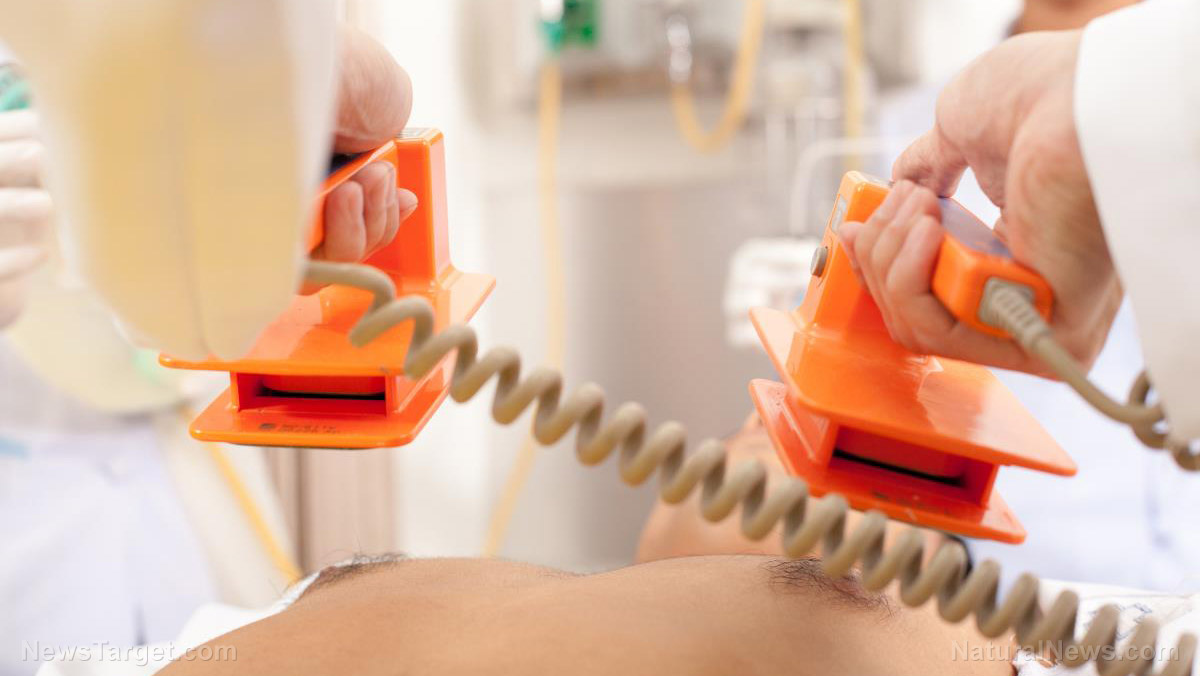Obese patients are injuring emergency workers: Super-sized mannequins purchased for practice
09/26/2017 / By Frances Bloomfield

In order to train emergency crews for rescues with obese patients, emergency services are now spending thousands of British pounds on special 350-pound (or 25-stone) bariatric training mannequins known as “Bariquins”.
According to the DailyMail.co.uk, this decision was prompted by the rising number of plus-sized patients being dealt with by ambulance and fire and rescue staff. The growing cases of obese casualties have resulted in over a thousand National Health Service (NHS) employees sustaining injuries between the years of 2011 and 2015, in turn costing the NHS hundreds of thousands of pounds in payoffs.
One such case saw former police officer Christ Jarratt performing cardio-pulmonary resuscitation (CPR) on a 392-pound (or 28-stone) man. Jaratt, now Managing Director of the company producing Bariquins, cites that moment as the inspiration behind the concept of their unique mannequins.
“Emergency services workers and healthcare workers are increasingly suffering injuries at work as a consequence of having to deal with the obesity epidemic,” said Jarrat. “We have already had a lot of interest in the Bariquins — staff have to deal with obese patients more and more frequently, and until now it was very difficult for them to practice treating these patients. The idea is that they can use ‘Barry’ to learn how to lift and carry obese patients safely and how to give the patient the maximum amount of dignity, too.” (Related: Hundreds of thousands of British pounds spent by the NHS on super-sized ambulances for the obese.)
Each Bariquin is made up of 15 separate, weighted parts, with the main torso weighing as much as 35.27 lbs or 16 kg, nearly the same weight as a flight suitcase. Every body part is connected with a series of clip locks that make it easy to disassemble a Bariquin for transportation, and to simulate limb loss if necessary. A single Bariquin can cost 4,320 British pounds ($5,822.97), and is usually delivered on a wheel-mounted roll cage to accommodate its weight.
The Lincolnshire Fire and Rescue service have already availed of the Bariquins and are believed to have spent well over 20,000 British pounds ($26,952.50) on these specialized life-sized dummies.
As Andy Ford, technical response manager of Lincolnshire Fire and Rescue, put it: “Our primary objective is to protect lives, prevent injuries and minimize the community impact from emergency incidents. To do that efficiently and effectively, we make sure our crews have the skills and equipment necessary to respond to a range of different emergencies. That includes the movement of those suffering from bariatric conditions at an incident, either as the first emergency service at the scene or when requested by another emergency service to assist.”
Go to Slender.news for stories like this one.
Fast facts on the U.K. obesity epidemic
- In 2015, the U.K was ranked as the most obese country in Western Europe, with 24.9 percent of adults falling under the classification of “obese”, and 61.7 percent being categorized as either “obese” or “overweight”. For a person to be considered obese, they need to have a body mass index (BMI) of 30 or more; an overweight person, meanwhile, will have a BMI of 25 or more.
- The Northeastern part of the U.K. has the highest obesity rates in the nation, with 13.5 percent of the population being classified as obese during 2011 and 2012. On the other hand, Tamworth, Staffordshire holds the title of being the “Britain’s fattest town”, with almost 31 percent of the people living there being obese.
- The obesity epidemic costs the NHS upwards of one billion British Pounds ($1.3 billion) a year, while the spending on treatment for obesity-related health conditions has risen to 1.027 billion British Pounds ($1.4 billion). This means that NHS spending on obesity has risen by 65 percent over the last ten years, and the NHS now allocates more of its resources into treating obesity than it does on hip operations for elderly patients.
Sources include:
Tagged Under: Bariquin, emergency services, first responders, obese, obesity, obesity epidemic




















